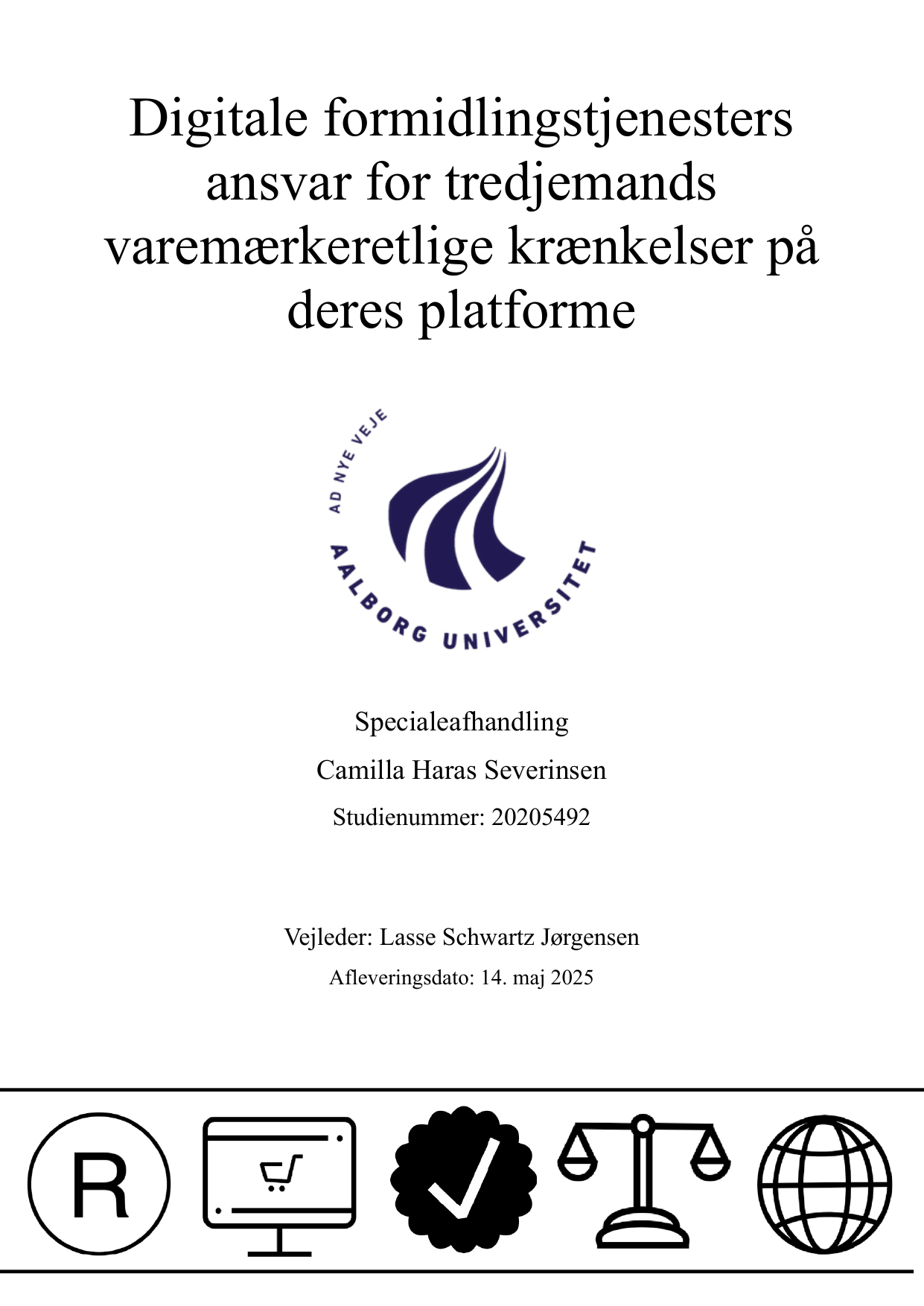
Digitale formidlingstjenesters ansvar for tredjemands varemærkeretlige krænkelser på deres platforme
Oversat titel
The liability of digital intermediary services for third-party trademark infringements on their platforms
Forfatter
Semester
4. semester
Uddannelse
Udgivelsesår
2025
Afleveret
2025-05-14
Antal sider
70
Abstract
This master’s thesis examines the legal position regarding trademark infringements on digital interme-diary platforms and clarifies to what extent these platforms can be held liable for illegal content. The main objective is to determine under what circumstances a platform may be considered a contributory party of the infringement, and when independent liability can be credited to the platform itself. The thesis begins by outlining the foundations and principles of trademark law, including the estab-lishment and functions of trademarks, as well as the rights conferred to trademark owners. The mere use of the internet has introduced new complexities to trademark protection, particularly as online con-tent can be spread globally in an instant. To address these challenges, the thesis reviews typical scenar-ios involving trademark use online such as domain names and search engine marketing. It aims both to identify acts of infringement and to clarify the liability of third parties engaging in unauthorized use. Although liability frameworks are not fully harmonized at EU level, the Digital Services Act (DSA) establishes three key exemptions from liability for providers of information society services. The the-sis focuses primarily on the exemption for hosting service providers under Article 6 of the DSA, ana-lyzing relevant case law to determine when the exemption applies. Additionally, various measures in-troduced by the DSA are assessed to evaluate how trademark holders can effectively safeguard their rights and prevent trademark dilution. In addition, the thesis also examines the proactive measures adopted by digital intermediary platforms to manage illegal content on their services such as technical monitoring – efforts that may be essential to avoid liability for third-party infringements. Finally, the thesis examines the challenges that the DSA may pose for both digital intermediary plat-forms and trademark owners. This includes a critical analysis of selected DSA provisions and relevant case law, with the aim of identifying who may be held liable and the limitations of such liability. From this it is concluded, among other things, that consumers’ perception of who the infringement origi-nates from is crucial in determining who will be liable. The thesis concludes by evaluating whether the DSA successfully fulfills the European Commission’s original goal of making a safe and trustworthy digital market within the EU.
